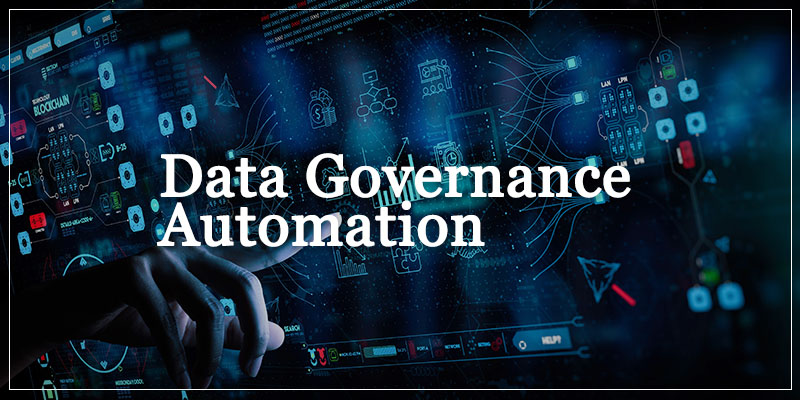Automation Promises to Revolutionize Data Governance – & Vice Versa


Solutions Review’s Contributed Content Series is a collection of contributed articles written by thought leaders in enterprise technology. In this feature, Talend Solution Engineering Manager Davide Pelosi offers commentary on how automation promises to revolutionize the field of data governance.
OpenAI unveiled ChatGPT in November 2022, lighting the tech world on fire, and it’s been a whirlwind since. This month, OpenAI’s latest offering, ChatGPT Enterprise, has ignited a fiery race among companies vying to harness its cutting-edge AI capabilities. Businesses are scrambling to integrate AI-powered solutions into their operations. Boardrooms are buzzing with anticipation as executives dream up the transformative potential of this advanced toolset. From automating complex processes to enhancing customer experiences, the competition to leverage AI has become the epicenter of a new era in enterprise innovation.
This is because AI, combined with health data, provides businesses with a competitive advantage and insights to streamline operations, reduce costs, boost revenue and enhance customer experience. The rapid advancement of AI technologies underscores the importance of robust data governance practices. It’s a dynamic intersection where automation holds the promise of revolutionizing data governance, but it’s a promise that must be vigilantly monitored to ensure compliance standards are upheld.
Data Governance Automation
Automation Can Help with Control
As organizations increasingly introduce automation and leverage AI technologies, it’s paramount to maintain control over data. Data governance helps to ensure organizations are feeding their AI systems with high-quality data while mitigating the risks associated in exposing sensitive information to external entities. It provides IT teams with the means to oversee an organization’s data assets to ensure integrity and security.
One of the immediate benefits of applying automation to data governance is the enhancement of regulatory compliance. Automation empowers organizations to harness the speed of trained algorithms through clear data policies. These policies serve as a guiding light and ensure that AI utilization does not compromise safety.
Data privacy regulations like General Data Protection Regulation (GDPR) and California Consumer Privacy Act (CCPA) are intricate and often have stringent requirements that can be challenging to navigate manually. Automation streamlines the process by classifying data sets mechanically rather than manually. Organizations can utilize mechanization to apply automation throughout data governance processes. Automation can even extend to the categorization of algorithms without human intervention by using machine learning and AI to detect patterns and similarities.
The Balancing Act of Automation & Data Quality
That said, it’s important to recognize that AI lacks the inherent ability to distinguish right from wrong. Feeding algorithms sensitive or low-quality information can lead to poor results. This is why data integrity should be a top priority from the outset. Teams working with AI must exercise caution not to include sensitive information in their training datasets to prevent such pitfalls.
As automation becomes more ingrained in our daily operations, particularly in the realm of data governance, it reduces the technical expertise required for certain tasks. Data cataloging, data lineage solutions and other complex processes become more accessible to a wider pool of professionals. This democratization of data governance processes is undoubtedly beneficial, but it also presents some challenges.
Automation heightens the importance of data quality. Without high-quality data, AI can generate inaccurate processes and outcomes. Recent documented concerns surrounding generative AI highlight the risks of using incomplete data. AI models can be excellent for generating initial ideas. However, they must be fact-checked to guarantee accuracy.
The Human Element Remains Irreplaceable
While automation enhances efficiency in processes, human intervention is vital for confirming data accuracy and ensuring the reliability of AI-generated outcomes. Generative AI makes it simpler to transmit and perpetuate false information, permeate bias and cause privacy breaches.
The concept of “human-in-the-loop” or human intervention is critical for maintaining data governance standards. This approach involves consistent check-ins on the health of an organization’s data and the maintenance of audits to assess the integrity of implementation. Human experts play a pivotal role in verifying the accuracy of AI-generated decisions by preventing potential algorithm bias. This human oversight helps it to align AI outputs with the organization’s standards and values.
A successful approach involves integrating human expertise into AI decision-making processes. Clear guidelines should be established for when human intervention is necessary, which includes monitoring and refining AI models based on human feedback. This harmonious coexistence of AI and human oversight promotes ethical outcomes.
The Path Forward
The AI movement continues to gain momentum, and its impact on the data space will only expand. Organizations must strike the right balance between automation and data governance to harness the potential of AI while preserving data quality and security.
The promise isn’t that we will reach a point where humans are no longer needed. The promise of this technology is to help us solve some of the biggest challenges facing our work.


















